- Friday, 30 January 2026
A Look Into Urban Literature
For most people, the impression of a city is- a vibrant and easy life, availability of modern facilities, and an utmost interactive arena. Many people have a dream to settle and be part of city life. Whether it is for higher study or employment, we throng the city. It is natural for everyone to aspire for a better life, so deserting villages and crowding cities is a common phenomenon. It's me, you, them and our families, relatives and friends- many are in the city.
Is the city hospitable, comfortable and fulfilling as we aspire it to be? It is a question that warrants attention. For many, despite being a vibrant place, the city appears cold and dead. This is not the place that we expect it to be. If there is any place where we face the most contradictions, it is the city.
An anthology of poems, ''The Selfish City'', penned by Bhoj Kumar Dhamala, argues, that the city is selfish. The title of the under-review anthology, 'The Selfish City', rivets us to ponder the contradictory aspects of the city. It is, however, the reflection of the contradictory self of we people. What is the business, hustle and bustle, and hurry in the city for? Poet Dhamala marvellously summarises: 'Just two meals a day is what one needs/Identity disguised for so-called supremacy'.
He attacks the pride of one's life in the city as everyone is disguised much for a higher life, a standard of living. But, what's this all for? Just two meals a day! The so-called grandiose is nothing more than an essential reality. He argues people are yearning for money as if they are 'to eat golden rice.' Erosion of trust is another bitter and biting reality of city life.
The collection of 54 poems is a post/modern mirror. Decadence, delusion, deviation, deconstruction, extreme polarity, disarray, chaos, confusion and urbanisation are some of the dominant themes in Dhamala's poems. Similarly, most of the poems show the contradictory nature of humans. Of course, the entire nature is fed and run with the binary and bipolar ethos. As we, people, are unavoidable parts of nature, contrast is integral.
It is because of the contrast and contradiction, people understand what life is and how situations should be handled. In another poem, 'Wake Up Kathmandu', he employs the same tool and paints Kathmandu as 'pregnant with pain' and a place for achievement. Here, Kathmandu as pregnant with pain can be interpreted in many other ways: It is transforming; socio-cultural and political movements emerge and grow here time and again; new issues get birth and rebirth. The theme of the title poem and this poem are similar.
On the one hand, Kathmandu is a place to nurture utopia, while it is a hellish place the dwellers are bound to live on the other. As a dweller of Kathmandu city, the poet finds himself a helpless onlooker to this situation. These can be dubbed urban poetry.
Irrespective of the downcast painting of life and time, the poet wants people to be restrained, responsible and disciplined for a smooth life span. In the poem, 'A-synchronization', he writes: Harnessing oneself to self-discipline will protect/ one from the final dot of life, orientation to the past/Pondering upon the present for a better tomorrow.
These lines also give a spiritual glimpse- of the oriental philosophy of life, the concept of re/incarnation- birth and rebirth. One can explain the words, 'past', 'present' and 'tomorrow', as the signal of birth and rebirth. He wants us to 'ponder upon a present for a better tomorrow.' He may have sought correction in life. A purgatory sense to cleanse life from decadence, disarray and degeneration can be observed in these lines. With this, he hopes it will help achieve synchronisation.
'Ebb and Flow is another poem employing contrast. 'On the journey of ebb and flow/experiencing/The excellent and meagre/Cosmic world where lies a sad reality' shows contradiction- good and bad, up and down. In the later lines, he talks about perennial love but warns that it is miles away. This is a picture of our life cycle.
The poems on climate change and subsequent adversity are other important reminders of the present time. The poem, 'Ecological Apocalypse', makes us aware of impending environmental tragedy. What a suffocation it is in the atmosphere with polluted air, and how quickly desertification is going. 'Technological encroachment, human ambition, concretisation, replacement and suffocation, nowhere fresh air or clear sky, mere blinding haze. And we, the rational ones, are lost'. As the writer said, it is a present reality that we are facing extreme weather events caused by climate change.
Who are those behind this concretisation? Of course, the esurient, materialistic and individualistic nature of humans is behind the present chaos. Humans, as the off-springs of nature, must be serious to save mother Earth. How much innovation and discoveries are too much to the cost of nature?
This poem makes everyone pose this question. As supreme beings, our behaviour needs immediate correction, otherwise, we face the apocalypse.
It is a warning the poet makes. Another poem, "Climate Change," has a similar theme. In the very beginning, he makes a warning, 'Extreme, it's extreme, you know the surrounding/Once lively, now outrageous.' Nature, once peaceful and pleasing, has begun showing its wrath - all because of harm and dishonour it is meted out. It is what the poem says.
Love, sex and pandemic are other topics the poet dwells on. 'Representation' is a symbolic poem talking about sex sans love. It can be a representation of modern life where sexual perversion is prevalent. Sex can be a culmination of love, an event to share love, and a complement to love and affection, but it has turned into a cheap activity to please the carnal side of life.
In conclusion, Mr Dhamala has finely pictured the human contradiction meticulously through his creation.
All poems are dovetailed in twelve lines- four lines in each stanza. In some of the poems, better wording is expected for further craftsmanship. The poems however can contribute to urban literature. The book, published by Ambar Publication House, costs Rs 395.





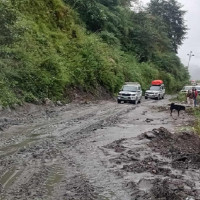
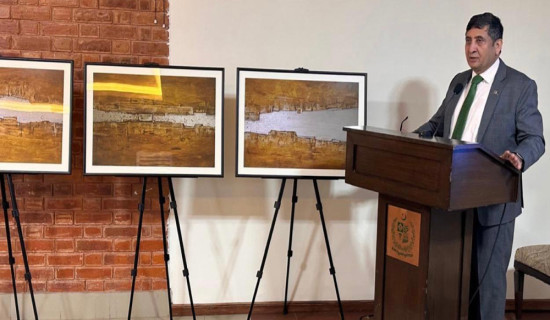
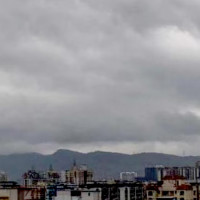
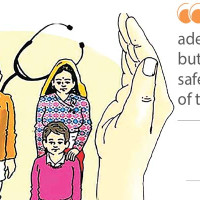
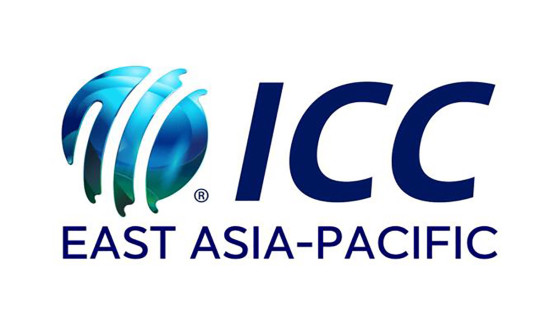
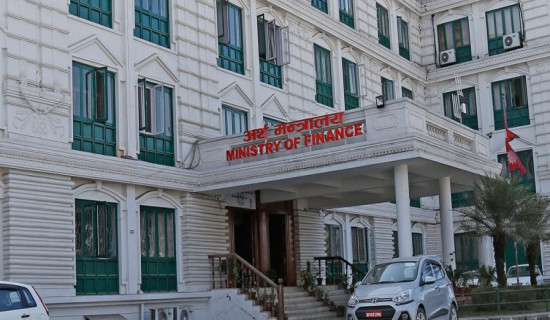


-original-thumb.jpg)


